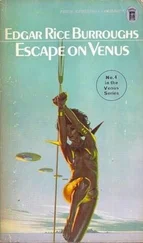Edgar Burroughs - Pirates of Venus
Здесь есть возможность читать онлайн «Edgar Burroughs - Pirates of Venus» весь текст электронной книги совершенно бесплатно (целиком полную версию без сокращений). В некоторых случаях можно слушать аудио, скачать через торрент в формате fb2 и присутствует краткое содержание. Жанр: Фантастика и фэнтези, на английском языке. Описание произведения, (предисловие) а так же отзывы посетителей доступны на портале библиотеки ЛибКат.
- Название:Pirates of Venus
- Автор:
- Жанр:
- Год:неизвестен
- ISBN:нет данных
- Рейтинг книги:4 / 5. Голосов: 1
-
Избранное:Добавить в избранное
- Отзывы:
-
Ваша оценка:
- 80
- 1
- 2
- 3
- 4
- 5
Pirates of Venus: краткое содержание, описание и аннотация
Предлагаем к чтению аннотацию, описание, краткое содержание или предисловие (зависит от того, что написал сам автор книги «Pirates of Venus»). Если вы не нашли необходимую информацию о книге — напишите в комментариях, мы постараемся отыскать её.
Pirates of Venus — читать онлайн бесплатно полную книгу (весь текст) целиком
Ниже представлен текст книги, разбитый по страницам. Система сохранения места последней прочитанной страницы, позволяет с удобством читать онлайн бесплатно книгу «Pirates of Venus», без необходимости каждый раз заново искать на чём Вы остановились. Поставьте закладку, и сможете в любой момент перейти на страницу, на которой закончили чтение.
Интервал:
Закладка:
The exact instant at which to make the start had also caused me considerable anxiety. I had calculated it again and again, but there were so many factors to be taken into consideration that I had found it expedient to have my figures checked and rechecked by a well-known physicist and an equally prominent astronomer. Their deductions tallied perfectly with mine—the torpedo must start upon its journey toward Mars some time before the red planet rose above the eastern horizon. The trajectory would be along a constantly flattening arc, influenced considerably at first by the earth's gravitational pull, which would decrease inversely as the square of the distance attained. As the torpedo left the earth's surface on a curved tangent, its departure must be so nicely timed that when it eventually escaped the pull of the earth its nose would be directed toward Mars.
On paper, these figures appeared most convincing; but, as the moment approached for my departure, I must confess to a sudden realization that they were based wholly upon theory, and I was struck with the utter folly of my mad venture.
For a moment I was aghast. The enormous torpedo, with its sixty tons, lying there at the end of its mile-long track, loomed above me, the semblance of a gargantuan coffin—my coffin, in which I was presently to be dashed to earth, or to the bottom of the Pacific, or cast out into space to wander there to the end of time. I was afraid. I admit it, but it was not so much the fear of death as the effect of the sudden realization of the stupendousness of the cosmic forces against which I had pitted my puny powers that temporarily unnerved me.
Then Jimmy spoke to me. "Let's have a last look at things inside the old crate before you shove off," he suggested, and my nervousness and my apprehensions vanished beneath the spell of his quiet tones and his matter-of-fact manner. I was myself again.
Together we inspected the cabin, where are located the controls, a wide and comfortable berth, a table, a chair, writing materials, and a well-stocked bookshelf. Behind the cabin is a small galley and just behind the galley a storeroom containing canned and dehydrated foods sufficient to last me a year. Back of this is a small battery room containing storage batteries for lighting, heating, and cooking, a dynamo, and a gas engine. The extreme stern compartment is filled with rockets and the intricate mechanical device by which they are fed to the firing chambers by means of the controls in the cabin. Forward of the main cabin is a large compartment in which are located the water and oxygen tanks, as well as a quantity of odds and ends necessary either to my safety or comfort.
Everything, it is needless to say, is fastened securely against the sudden and terrific stress that must accompany the take-off. Once out in space, I anticipate no sense of motion, but the start is going to be rather jarring. To absorb, as much as possible, the shock of the take-off, the rocket consists of two torpedoes, a smaller torpedo within a larger one, the former considerably shorter than the latter and consisting of several sections, each one comprising one of the compartments I have described. Between the inner and outer shells and between each two compartments is installed a system of ingenious hydraulic shock absorbers designed to more or less gradually overcome the inertia of the inner torpedo during the take-off. I trust that it functions properly.
In addition to these precautions against disaster at the start, the chair in which I shall sit before the controls is not only heavily overstuffed but is secured to a track or framework that is equipped with shock absorbers. Furthermore, there are means whereby I may strap myself securely into the chair before taking off.
I have neglected nothing essential to my safety, upon which depends the success of my project.
Following our final inspection of the interior, Jimmy and I clambered to the top of the torpedo for a last inspection of the parachutes, which I hope will sufficiently retard the speed of the rocket after it enters the atmosphere of Mars to permit me to bail out with my own parachute in time to make a safe landing. The main parachutes are in a series of compartments running the full length of the top of the torpedo. To explain them more clearly, I may say that they are a continuous series of batteries of parachutes, each battery consisting of a number of parachutes of increasing diameter from the uppermost, which is the smallest. Each battery is in an individual compartment, and each compartment is covered by a separate hatch that can be opened at the will of the operator by controls in the cabin. Each parachute is anchored to the torpedo by a separate cable. I expect about one half of them to be torn loose while checking the speed of the torpedo sufficiently to permit the others to hold and further retard it to a point where I may safely open the doors and jump with my own parachute and oxygen tank.
The moment for departure was approaching. Jimmy and I had descended to the ground and the most difficult ordeal now faced me—that of saying good-bye to these loyal friends and co-workers. We did not say much, we were too filled with emotion, and there was not a dry eye among us. Without exception none of the Mexican laborers could understand why the nose of the torpedo was not pointed straight up in the air if my intended destination were Marte . Nothing could convince them that I would not shoot out a short distance and make a graceful nose dive into the Pacific—that is, if I started at all, which many of them doubted.
There was a handclasp all around, and then I mounted the ladder leaning against the side of the torpedo and entered it. As I closed the door of the outer shell, I saw my friends piling into the trucks and pulling away, for I had given orders that no one should be within a mile of the rocket when I took off, fearing, as I did, the effect upon them of the terrific explosion that must accompany the take-off. Securing the outer door with its great vaultlike bolts, I closed the inner door and fastened it; then I took my seat before the controls and buckled the straps that held me to the chair.
I glanced at my watch. It lacked nine minutes of the zero hour. In nine minutes I should be on my way out into the great void, or in nine minutes I should be dead. If all did not go well, the disaster would follow within a fraction of a split second after I touched the first firing control.
Seven minutes! My throat felt dry and parched; I wanted a drink of water, but there was no time.
Four minutes! Thirty-five million miles are a lot of miles, yet I planned on spanning them in between forty and forty-five days.
Two minutes! I inspected the oxygen gauge and opened the valve a trifle wider.
One minute! I thought of my mother and wondered if she were way out there somewhere waiting for me.
Thirty seconds! My hand was on the control. Fifteen seconds! Ten, five, four, three, two—one!
I turned the pointer! There was a muffled roar. The torpedo leaped forward. I was off!
I knew that the take-off was a success. I glanced through the port at my side at the instant that the torpedo started, but so terrific was its initial speed that I saw only a confused blur as the landscape rushed past. I was thrilled and delighted by the ease and perfection with which the take-off had been accomplished, and I must admit that I was not a little surprised by the almost negligible effects that were noticeable in the cabin. I had had the sensation as of a giant hand pressing me suddenly back against the upholstery of my chair but that had passed almost at once, and now there was no sensation different from that which one might experience sitting in an easy chair in a comfortable drawing-room on terra firma.
There was no sensation of motion after the first few seconds that were required to pass through the earth's atmosphere, and now that I had done all that lay within my power to do. I could only leave the rest to momentum, gravitation, and fate. Releasing the straps that held me to the chair, I moved about the cabin to look through the various ports, of which there were several in the sides, keel, and top of the torpedo Space was a black void dotted with countless points of light. The earth I could not see, for it lay directly astern; far ahead was Mars. All seemed well. I switched on the electric lights, and seating myself at the table, made the first entries in the log; then I checked over various computations of time and distances.
Читать дальшеИнтервал:
Закладка:
Похожие книги на «Pirates of Venus»
Представляем Вашему вниманию похожие книги на «Pirates of Venus» списком для выбора. Мы отобрали схожую по названию и смыслу литературу в надежде предоставить читателям больше вариантов отыскать новые, интересные, ещё непрочитанные произведения.
Обсуждение, отзывы о книге «Pirates of Venus» и просто собственные мнения читателей. Оставьте ваши комментарии, напишите, что Вы думаете о произведении, его смысле или главных героях. Укажите что конкретно понравилось, а что нет, и почему Вы так считаете.









